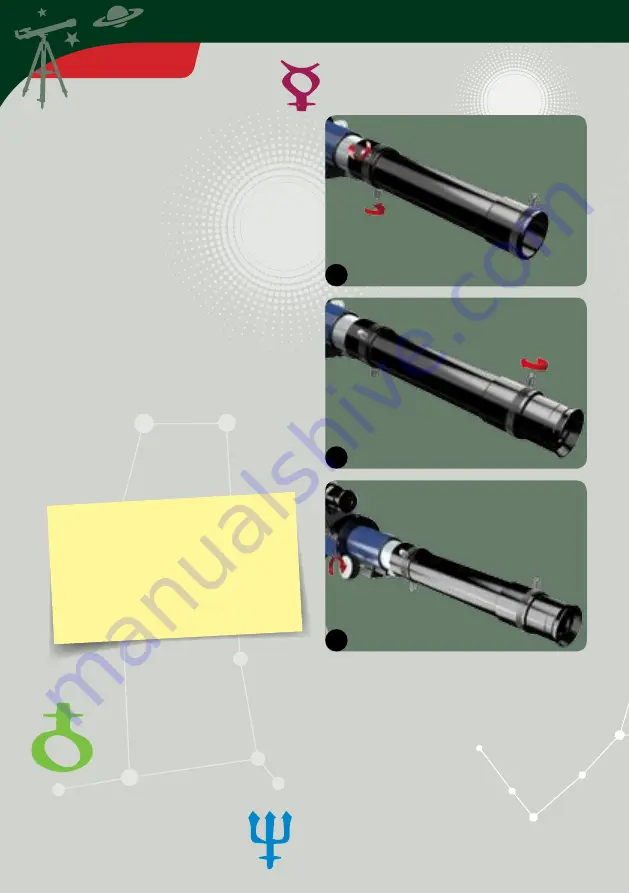
Viewing in daytime
YOU WILL NEED
› Fully assembled telescope
› Image reversal lens
HERE’S HOW:
1. Start by inserting the image reversal lens into
the eyepiece extension until it hits the stop,
and secure it tight with the two knurled
screws.
2. Then, insert the eyepiece into the image
reversal lens and clamp it on tight.
3. Use the viewfinder to orient your telescope
toward the observation target.
4. Bring the target into focus by rotating the
eyepiece extension.
TIP!
The image reversal lens is m
ost useful
with the 20-mm eyepiece. T
hat gives you
a 53x magnification, becaus
e the image
reversal lens extends the ob
jective focal
length by a factor of 1.5.
VIEWING
22
1
2
4



























